The Earth Charter International congratulates Mirian Vilela, Rick Clugston, and Peter Blaze Corcoran for receiving the Thomas Berry Award at a special ceremony during the ECI Education for Ecological Civilization Conference at Rollins College in Florida on April 12, 2024. The Award was presented by Mary Evelyn Tucker and John Grim, managing trustees of the Thomas Berry Foundation as well as founders and co-directors of the Yale Forum on Religion and Ecology. They introduced the program with reference to the key ideas that Thomas Berry focused on during his life, and on the remarkable work that the three recipients have been doing for over 25 years. They stressed that Berry’s legacy lives on through the Thomas Berry Award, which honors individuals who carry his vision of an ecologically sustainable future.
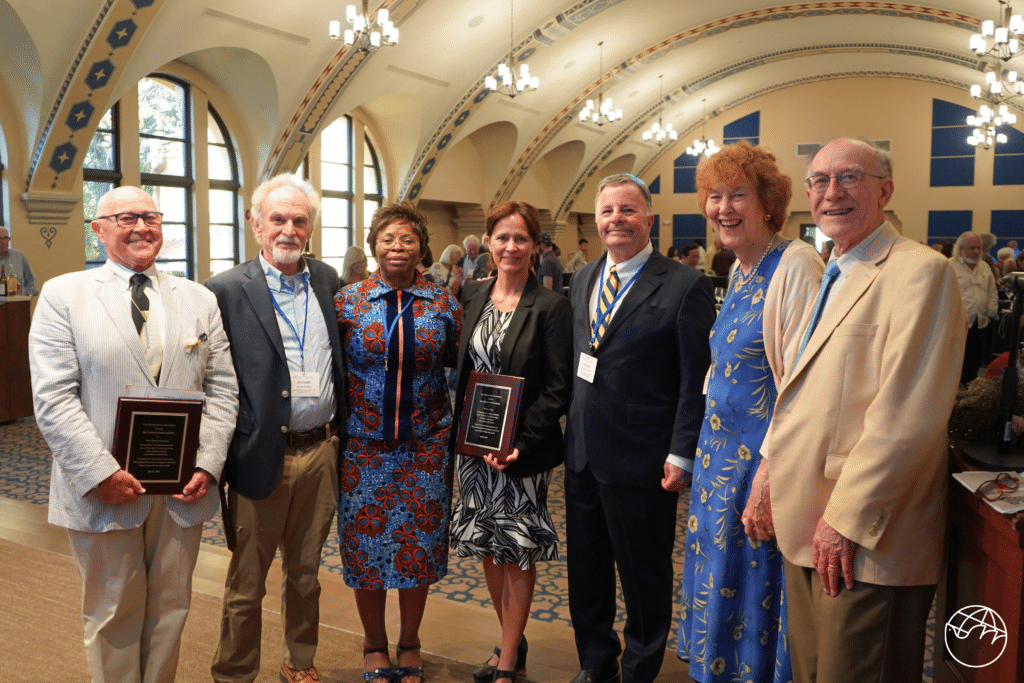
This award is conferred by the Thomas Berry Foundation to individuals who exemplify the ideas of the “Great Work” in their teachings, writings, and public service. Thomas defines the “Great Work” as a “the transition from a period of human devastation of the Earth to a period when humans would be present to the planet in a mutually beneficial manner.” (2000, p. 3).
The Thomas Berry Award was first conferred in 1998 and has a total of 25 recipients ranging from acclaimed musicians, influential professors, spiritual leaders, and leaders of international foundations. Mirian Vilela is the Executive Director of the Earth Charter International and the Center for Education for Sustainable Development at UPEACE in Costa Rica and has worked to facilitate numerous international forums on sustainable development. Rick Clugston was Executive Director of the Center for Respect of Life and Environment in Washington, D.C and was a member of the Earth Charter drafting committee and serves on the Earth Charter International Council. Peter Blaze Corcoran is the founder and former director of the Center for Environmental and Sustainability Education at Florida Gulf Coast University, Senior Advisor to Earth Charter International, and Research Fellow at the Earth Charter Center for Education for Sustainable Development.
In expressing gratitude, Mirian Vilela said that she feels she carries a responsibility to move forward towards the realization of the vision crafted years ago, by giants, such as Thomas Berry, Maurice Strong, Kamla Chowdhry and Steven Rockefeller, who came before her. They laid the foundation for a “Great Work,” which can certainly not be accomplished within a single generation nor by a small group, hence it requires an intergenerational collaboration and shared vision of many.
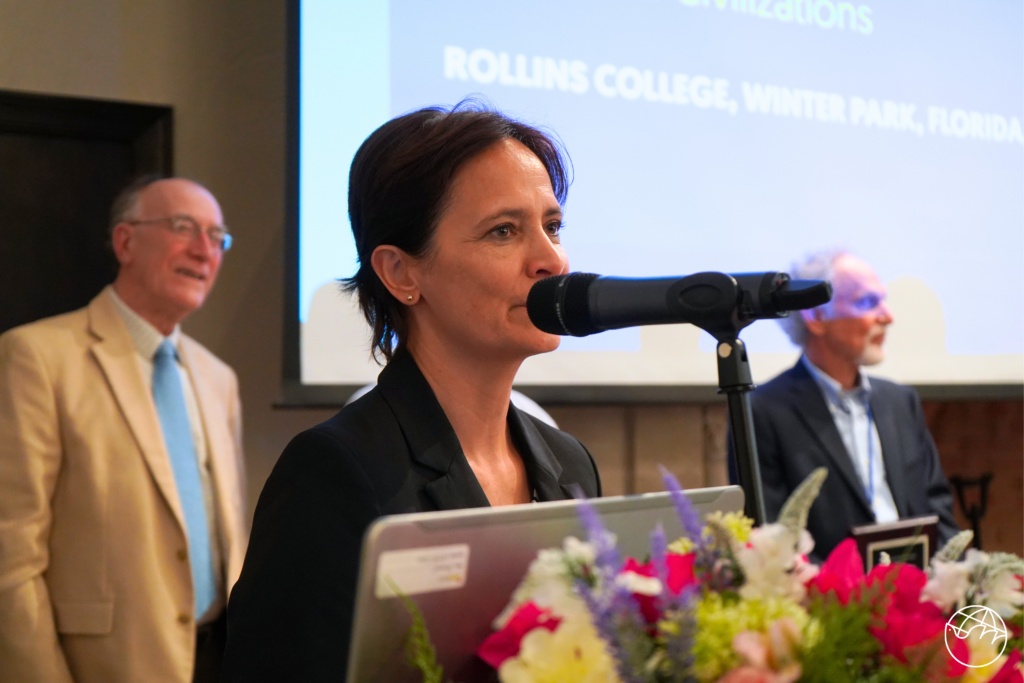
Mirian also said she vividly remembers hearing Thomas Berry speak during a symposium held in May 2002 in Maine. He spoke eloquently about the importance of cultivating that feeling of intimacy and sense of connection with our home, as he compared it to when a horse is coming back home and the sense of joy that emerges through the smells and sounds of all the senses.
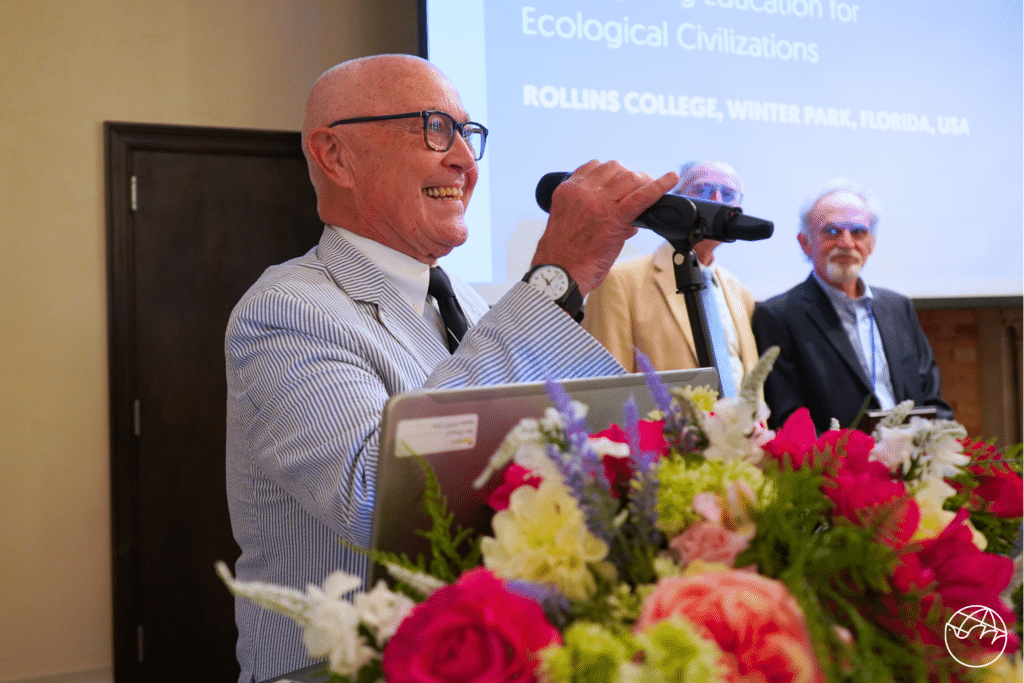
Peter Blaze Corcoran said he was honored to receive this recognition for his work in the field of Earth Charter scholarship. “It is a profound honour to receive the Thomas Berry Award. He is one of my intellectual heroes.”
Rick Clugston shared “Reading Thomas Berry’s Dream of the Earth, motivated me to leave academia to find a job where I could further what he called “mutually enhancing human Earth relationships.” When I joined the Center for Respect of Life and Environment, I was delighted to discover that Thomas was on the Board of Advisors. He was active in shaping our programs, including our annual “Spirituality and Sustainability” Conferences in Rome and Assisi, and we adopted his phrase, ‘Existence is a Communion of Subjects not a collection of objects’ as our organization’s slogan. That same fall of 1989, I began working with the Citizens’ Network for Sustainable Development on drafting an Earth Charter, and soon founded Earth Charter USA. I deeply appreciate receiving the Thomas Berry Award, celebrating his guidance in finding my great work, especially with Earth Charter International’s success in promoting an ethic of respect and care for the community of life.”
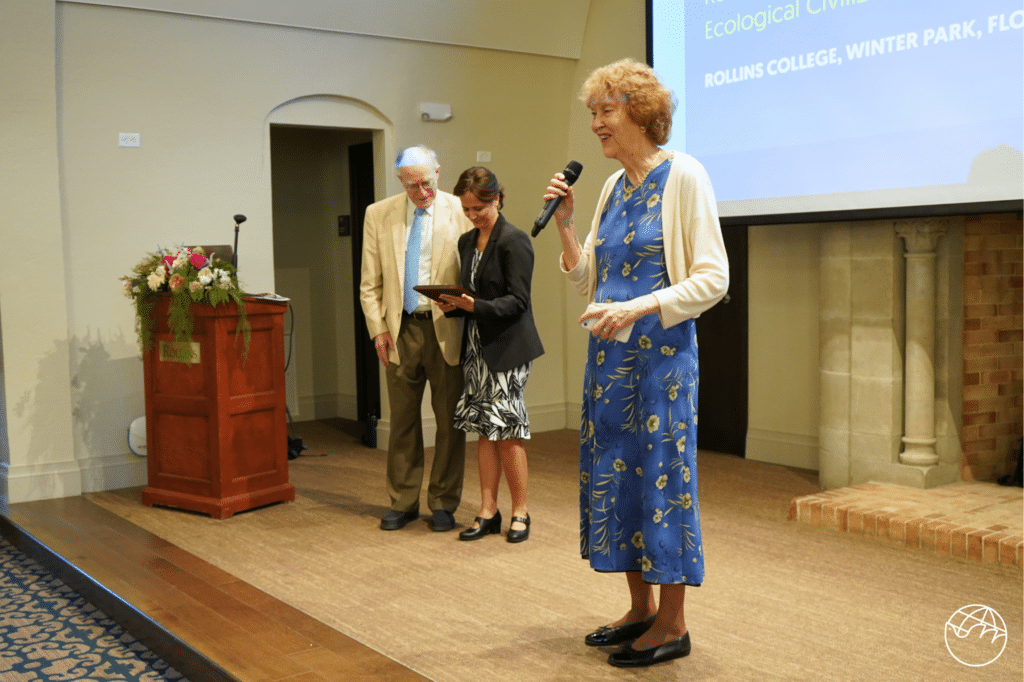
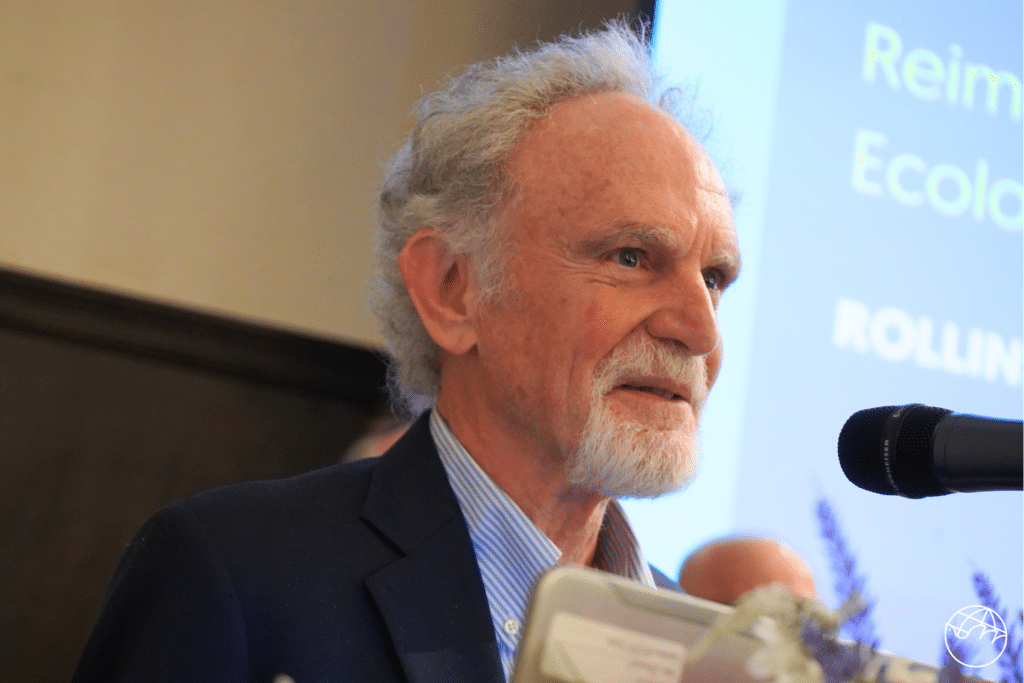
Thomas Berry, a renowned cultural historian and self-described “geologian”, was born on November 9, 1914, in Greensboro, North Carolina, U.S. In 1933, he entered the Passionist Order and was ordained in 1942. In 1947 he received a doctorate in European Intellectual History at the Catholic University in Washington DC. He studied Western, Asian, and Indigenous religions and later taught world religions at Fordham University. There he established a graduate program in the History of Religions, which he directed until his retirement from teaching in 1979. He mentored 25 PhD students, including John Grim, who did his thesis on shamanism. Berry founded and led the Riverdale Center for Religious Research from 1975-1995.
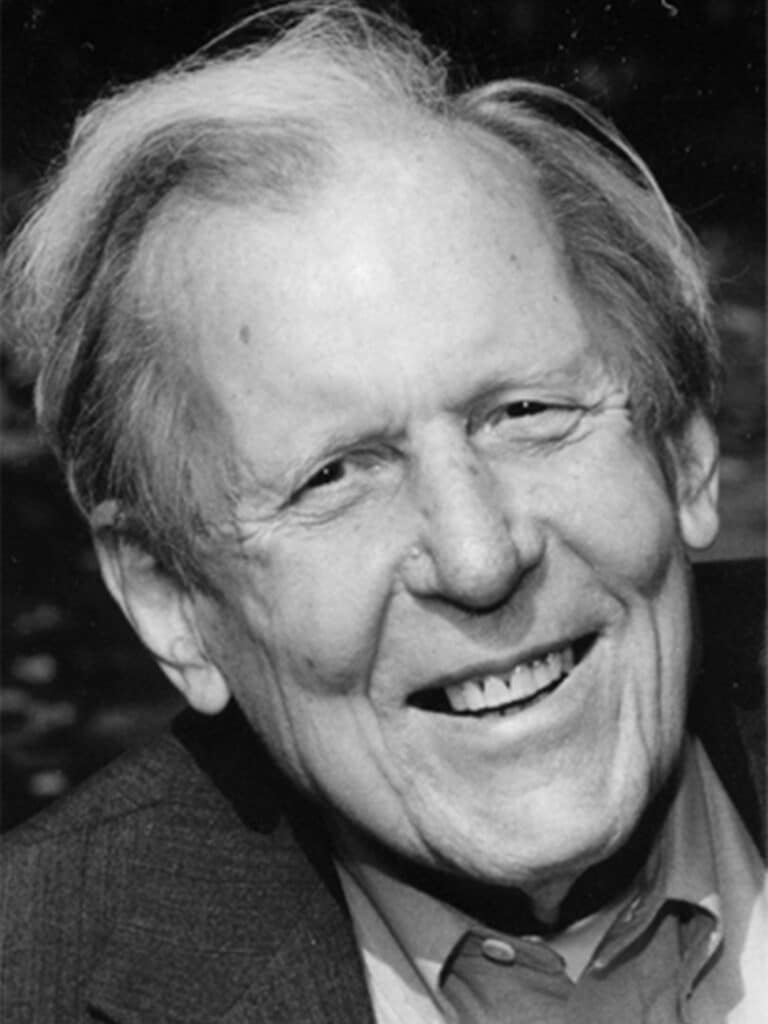
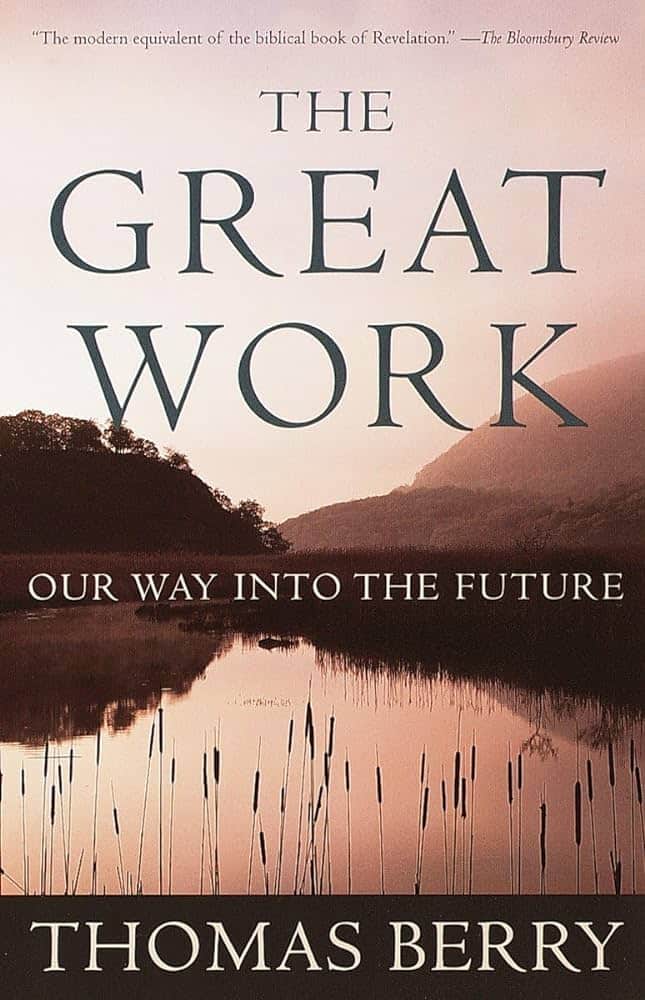
His interest in history and world religions expanded to a study of the ecological and cosmological dimensions of human history. Berry saw the whole of life and the universe as an evolutionary process, inextricably linked to each other. He noted how humanity has lost this connection in its race towards modernization. During the nineties, a series of Spirituality and Sustainability conferences took place in Assisi, many of which included the participation of Thomas Berry. There discussions were held around the Earth Charter drafting process to which Thomas contributed. Similarly, Berry participated in the 10 Harvard conferences on World Religions and Ecology (1996-1998). Each of these conferences concluded with a session examining how these religions could contribute to the drafting process of the Earth Charter.
Thomas Berry’s legacy is profound and far reaching, encompassing his role as an educator, lecturer, writer, and leader in environmental ethics and ecological thought. As a cultural historian and geologian, Berry championed the idea of the Earth as a sacred community, advocating for a harmonious relationship between humans and the natural world. His work articulates and emphasizes the interconnectedness of all life forms, the Earth, and the universe, and serves as a call to action to foster a flourishing future of all life. Berry’s teachings and writings continue to inspire environmental movements and education programs, including the Earth Charter, and foster a greater sense of ecological responsibility and spiritual awareness that “the universe, by definition, is a single gorgeous celebratory event” (1988, p. 5).
Much of the work of the Earth Charter International is doing lies at the center of this insight from Thomas Berry: “The Great Work now, as we move into a new millennium, is to carry out the transition from a period of human devastation of the Earth to a period when humans would be present to the planet in a mutually beneficial manner.” (Thomas Berry, “The Great Work,” in The Great Work, 3).
For more information on Thomas Berry visit: www.thomasberry.org
For a free online Coursera class on Thomas Berry see:
https://www.coursera.org/learn/thomas-berry?specialization=journey-of-the-universe
References:
Thomas Berry, The Dream of the Earth. Counterpoint Press, 2006. (first edition, Sierra Club Books, 1988.
Thomas Berry, The Great Work: Our Way into the Future. Bell Tower, 1999.
Mary Evelyn Tucker, John Grim, Andrew Angyal, Thomas Berry: A Biography. Columbia University Press, 2019.






